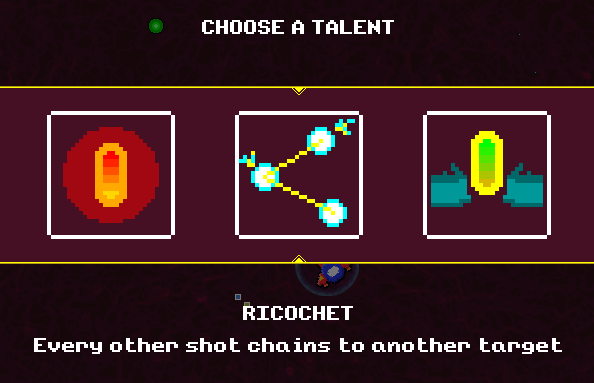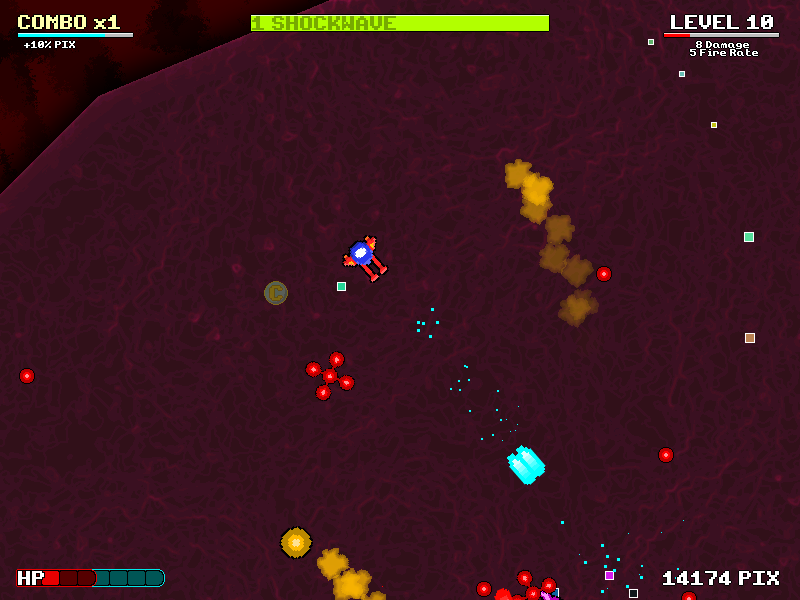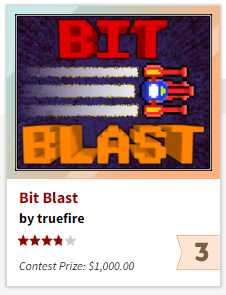Bit Blast
A Quick Roguelite Exploration

2017
Roguelite Twin-Stick Shooter
Solo
Some time in 2016 I began to really latch onto the idea of “One-of-Three” upgrades, wherein the player is given a choice between three powers/items/abilities and must select only one to obtain. This is a concept that had already been proven in draft formats of various card games, and one that would go on to prove a staple of the roguelite genre in the coming years, especially exploding in popularity around 2019.
As an environemnt to explore this concept, I built a simple twin-stick shooter called Bit Blast. The core gameplay loop involved surviving waves of progressively more difficult enemies while collecting “pix” to upgrade your ship. Persistent upgrades could be purchased between runs, and players would periodically be granted one temporary upgrade from a selection of 3 for the duration of that run only.


Designing a high-intensity action game provided me an avenue to brush up on these concepts while exploring the talent-choice idea. In the end, I chose a twin-stick shooter because of the minimal upfront implementation and asset costs – this was intended to be a quick test game made within a few weeks, after all.
The game ended up going on to place third by player rating in Kongregate's monthly contest -- not to bad for a quick experiment.
The talent choices players are provided in Bit Blast appear in a fixed order that does not change between runs. Early on in development I had really wanted to provide the player with random talent options instead. Compared to fixed choices, a random selection would considerably increase the variety between runs. But after a considerable amount of testing, I decided to scrap this idea for two main reasons:
- One thing I was intent on achieving with this game was a fairly tight gameplay balance – a player should feel challenged, and they should overcome that challenge by improving their game sense and mechanical skill. I wanted players to continually feel like they were just on the edge of surviving when a run ended. When I had the balance as tight as I wanted, a randomized set of talents would often either put the player in a position where they were considerably ahead of the curve or impossibly behind.
- The fixed order of talents provided players with a sense of stability and introduced a discovery and planning aspect to the game. While this kind of discovery wouldn’t hold up long-term compared to the strategic depth of selecting between random talents, Bit Blast was only designed to be a 30-60 minute game. The feeling of mastery that came from learning the talent progression and figuring out the best combinations turned out to be a very powerful tool for keeping players engaged for precisely as long as it took to beat the game.